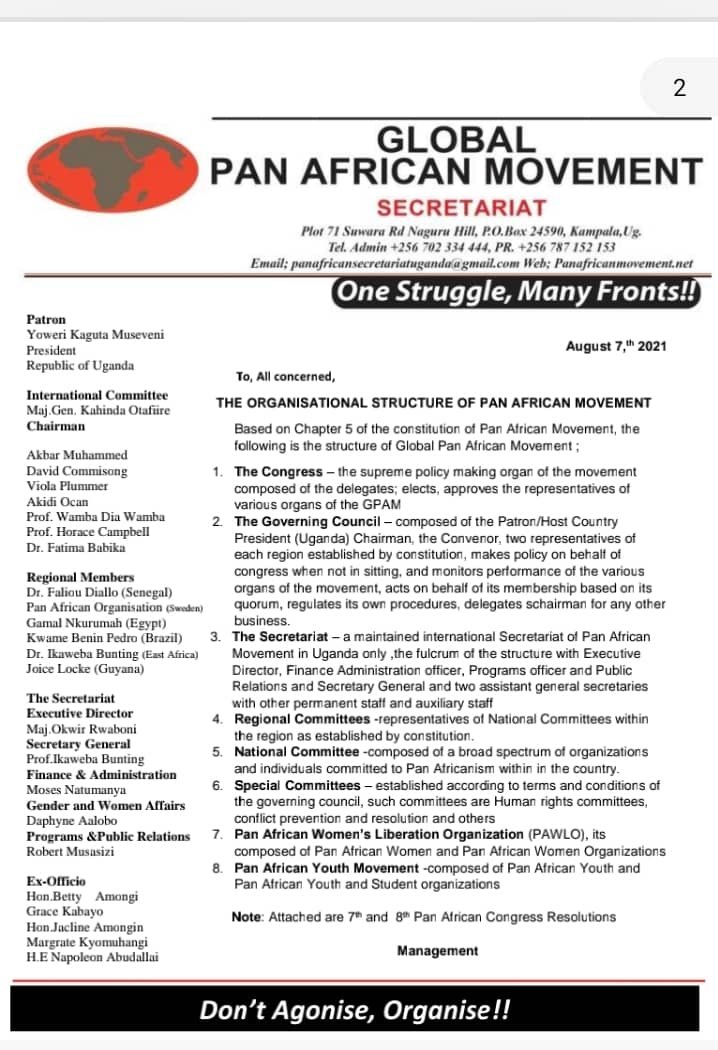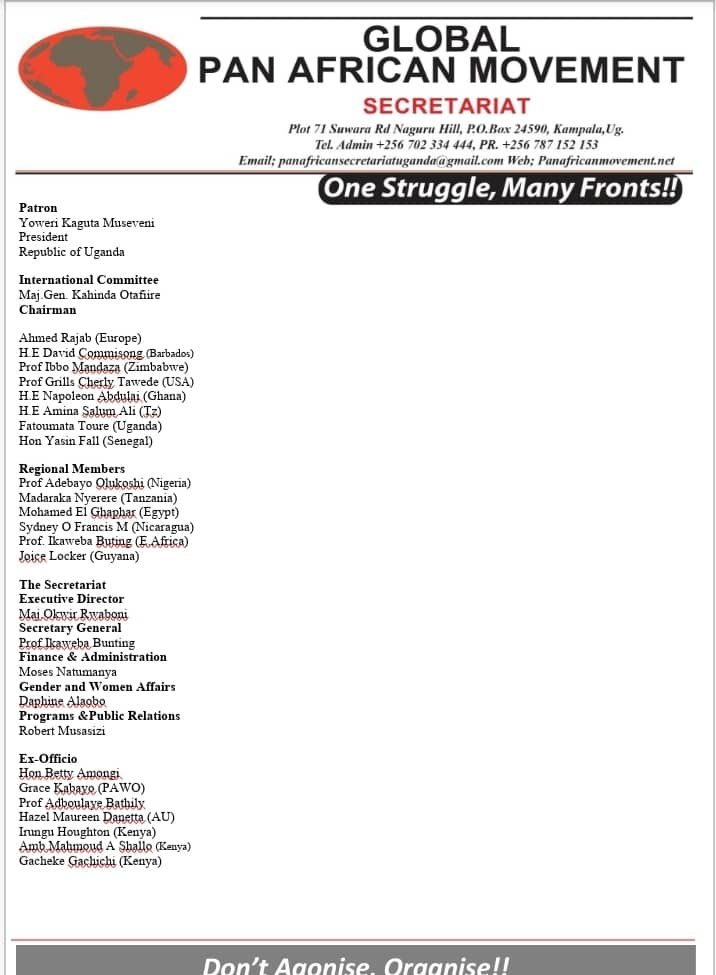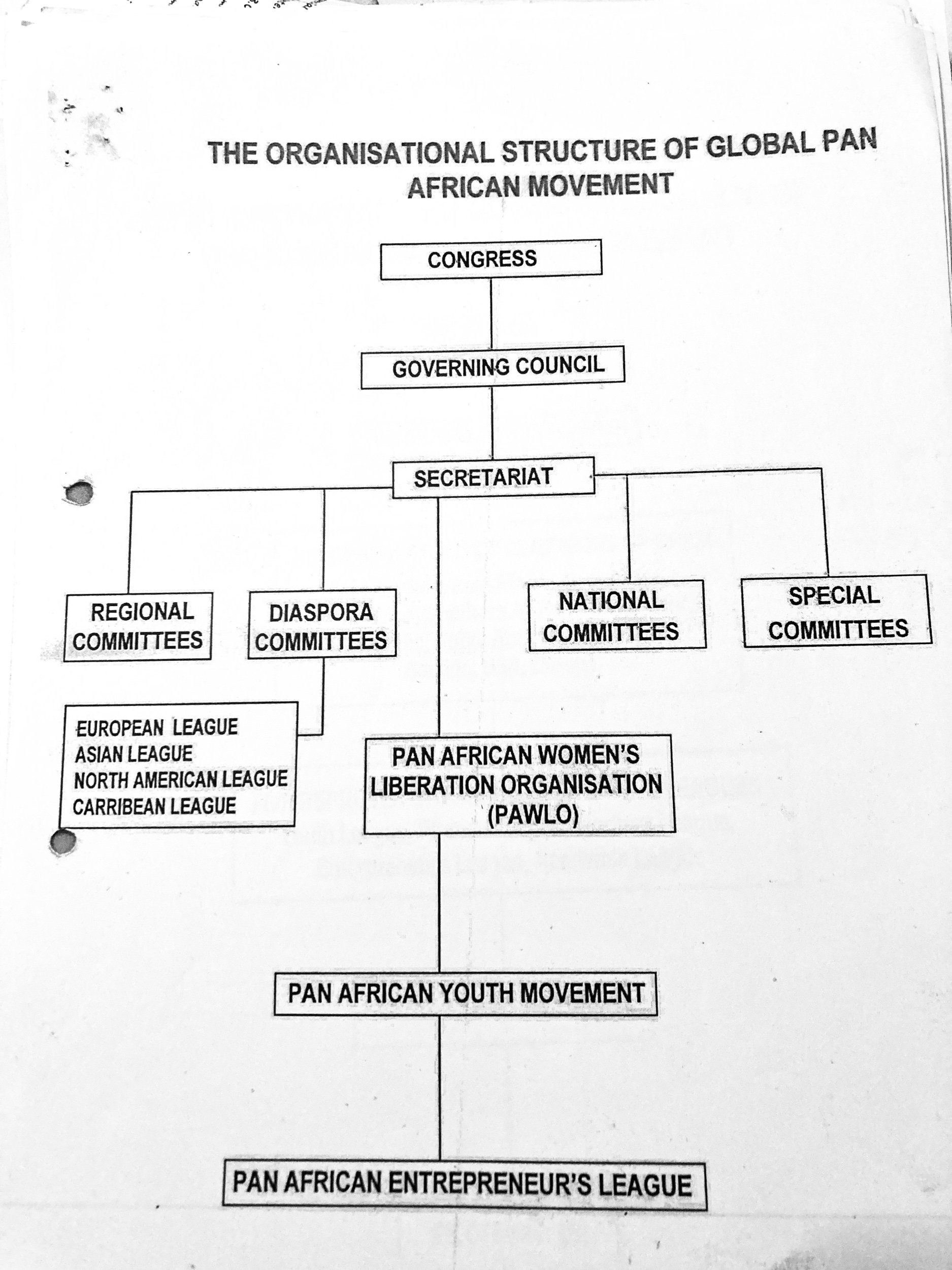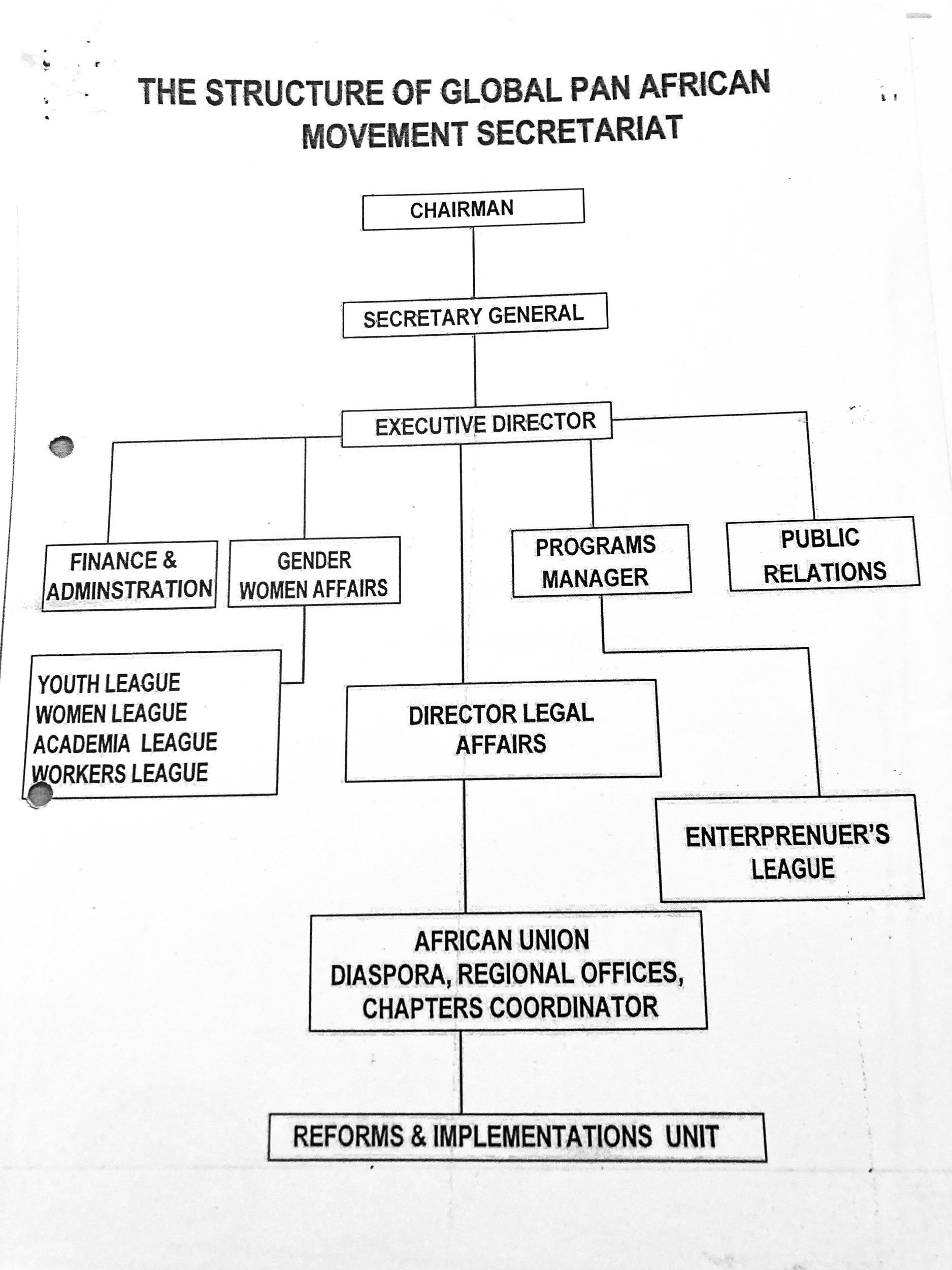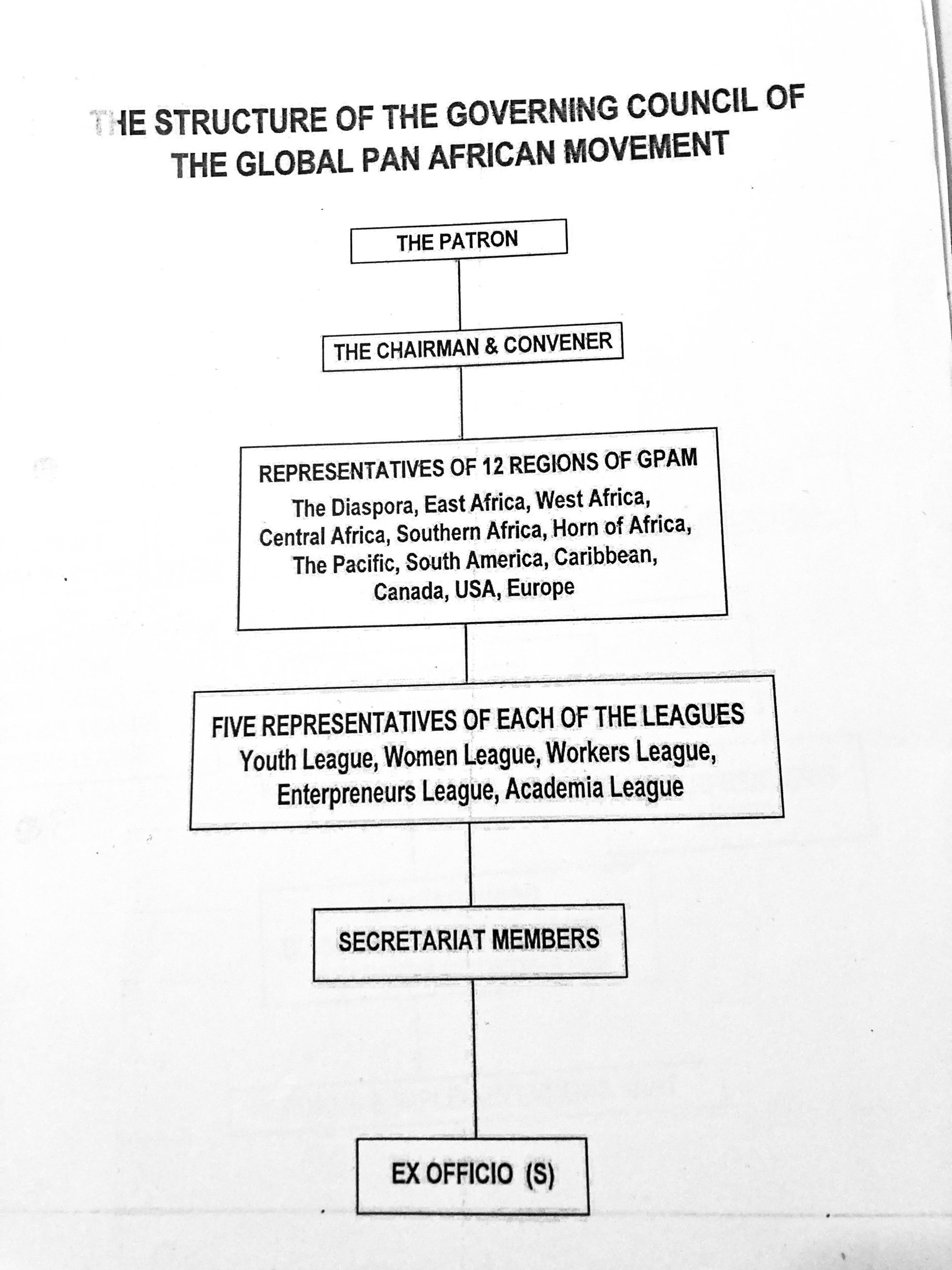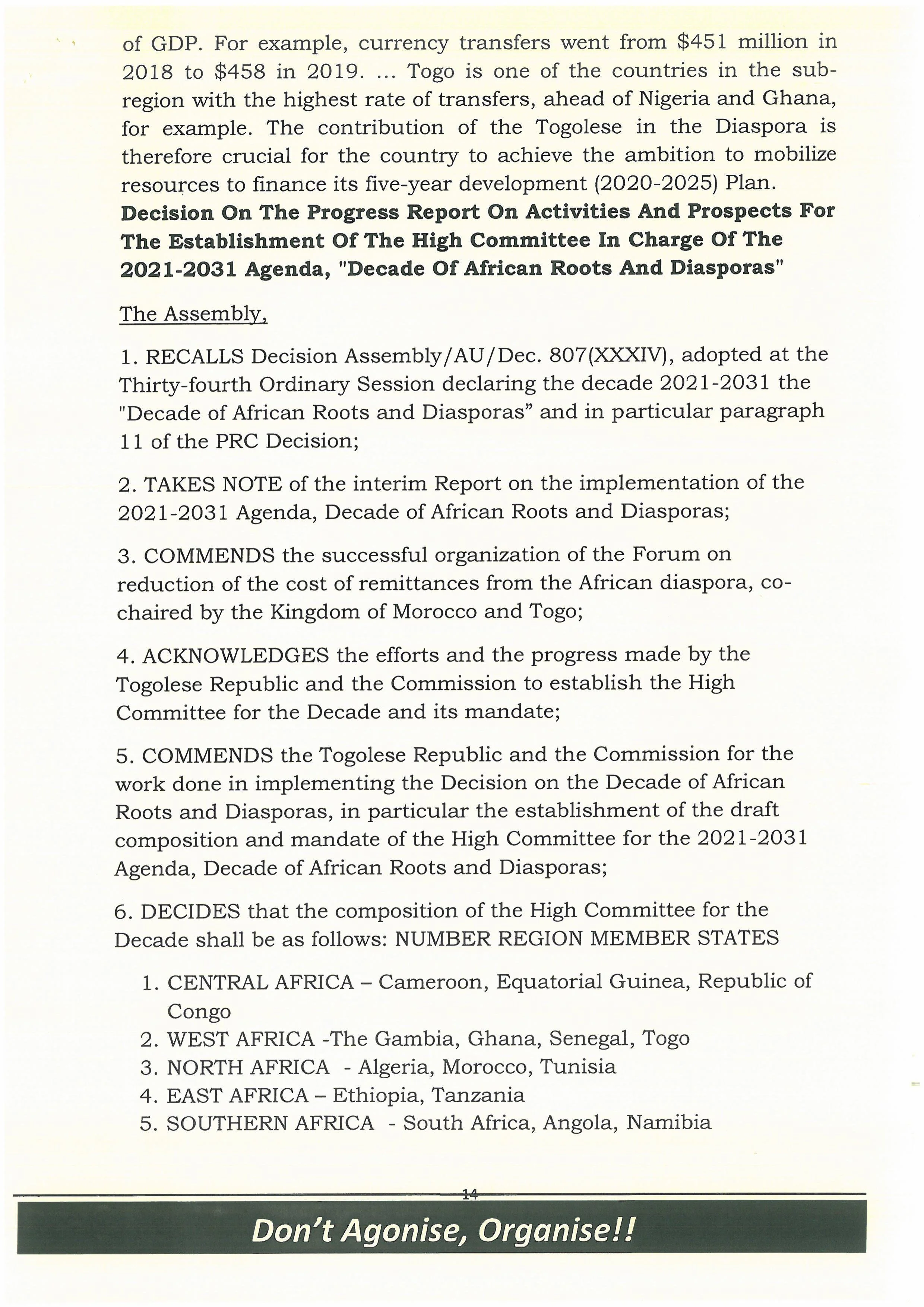“Birds which fly without coordination, beat each other’s wings.”
Baganda, Uganda proverb
***************************************************************
The generation of young African people of today ask:
Does the Pan African Movement have an institution that represents all of us, is SUPPPORTED by all of us and speaks with one recognized voice? Where do all the Pan African Organizations register and coordinate their activities? What is the mechanism through which all Pan African organizations can work together?
***************************************************************
Three separate Pan African Congresses are being organized for 2024: one that was first called by H.E. Ambassador Arikana Chihombori Quao that is scheduled to take place in Zimbabwe, one called for by the Global Pan African Movement (GPAM) to take place in Kampala, Uganda, and one called for by the Republic of Togo . If all three are successful, we will have succeeded in creating three very high-level and well respected entities with the same vision, objectives and agendas with separate, uncoordinated structures competing with each other for both popular support and African Union recognition.
Moreover, other entitites and initiatives outside of the Pan African Congress legacy format are also pursuing the same vision, objectives and agendas, particularly concerning the establishment, governing and administrating for the African Union 6th Region. Not only is this a waste of resources in duplicate and redundant efforts, it will further show that the Pan African movement and the African Diaspora 6th Region does not fully understand itself, the potential of the moments, and is incapable of organizing and managing its own affairs.
How can the Pan Africanists demand a “One Africa” when it can not set the example of a “One Pan African Secretariat” that is supported by all Pan Africanists that can speak with one voice? How can the African Diaspora demand a “One Africa” when it can not set the example of a “One African Diaspora 6th Region” with a high council that is supported by all Africans in the Diaspora and can speak with one voice?
***************************************************************
Why the Pan African Congress?
The first Pan African Conference, called by Sylvester Williams in 1900, appealed to the leaders of the world not to ignore the sufferings of Black people. W.E.B. DuBois then championed Pan African Congresses in 1919, 1921, 1923 and 1927. By the time of the Fifth Pan African Congress in 1945, the imperative of the African World was an end to colonialism, which led to the formation of the Organization of African Unity in 1963. The challenge for the participants of the Sixth Pan African Congress in 1974 was how to harness Africa’s new independent power, deconstruct neocolonialist regimes, and unite the diaspora under a common Pan-African agenda. To achieve this, the 6th PAC sought to encourage dual citizenship for Africans from the West and establish a Permanent Secretariat.
Courtland Cox, Secretary General of the 6th Pan African Congress, stated in his closing remarks to the delegations, “I believe this Congress has clearly advocated new imperatives: an end to neo-colonialism and imperialism, and the revolutionary social transformation of African societies and communities…I think this Congress has ratified the validity of African people meeting to chart a political course for our common problems. We as African people still have an obligation to continue our own most important contribution to human advancement—the building of a strong, just Africa, and the forging of a United African People.”
WORKING PAPER ON DESIRABLE RESULTS OF THE 6TH PAN AFRICAN CONGRESS, TANZANIA 1974
However, according to Tajudeen Abdul-Raheem, Secretary General of the International Preparatory Committee of the 7th PAC held in 1994 in Kampala, Uganda, “One major question for the movement was how to define the tasks of the Pan African struggle for the twenty first century. . . .Perhaps the greatest weakness of the 6th Pan African Congress was the inability to transform all the good resolutions into a concrete organizational and institutional framework of action. Subsequently, its impact was not as decisive as it could have been, than if it had had an institutional base after the Congress. It is a mistake which the 7th Pan African Congress sought to rectify by agreeing to set up a permanent secretariat in order to reverse the spasmodic initiatives of the past.” Indeed, Resolution 1 of the 7th PAC is entitled, “Concerning a Permanent Post-Congress Organizational Structure.”
Why the Pan African Secretariat?
The Pan African Secretariat has not realized what it was supposed to do. This is partly attributed to the unforeseen death of Dr. Tajudeen Abdul Raheem, General Secretary of the Pan African Movement and principal organizer for decades, which led to a period of reorganization with a continuing lack of funds during which the proper functioning of the Secretariat was affected over the next decade. In addition, another important resolution of the 7th Pan African Congress was to support regional mechanisms that would allow for local input at the broadest level geared towards the next Pan African Congress. Delegates also realized that this could only happen with sufficient funding.
On May 6, 2015, Professor Ikaweba Bunting, Secretary General of the Global Pan African Movement published 8th Pan African Congress: The congress is not the movement Reflections on Phase I of the Congress in Accra, March 2015 noting:
“The third notable feature apparent during this process was the absence of institutional sustenance of Pan Africanist political culture. Despite a broad recognition of the critical need for a Pan Africanist’s method of organization there is an absence of cohesive and persistent effort, clarity of purpose and sustainable institutional support. To realize the objectives of a Union Government and create a movement to rectify the social, economic and political exploitation of African peoples, a Pan Africanist political culture must be inculcated, nurtured and institutionalized throughout the Six Regions of the African world. It is the task for the Global Pan African Movement to ensure that Pan African institutions and organizations at all levels are functional and effective, and imbued with a Pan Africanist political culture. The absence of functional Pan Africanist institutions and Pan African political culture has left a vacuum that has been filled with a potpourri of ideas formulated under the rubric of Pan Africanism. What materializes is an amalgam of values, notions, ideas and dogma that are perplexing or contradictory to Pan Africanist purpose and ideology.”
The Pan African Congress, the African Union and the African Diaspora 6th Region
The struggle against apartheid in South Africa kept the Pan African world united. In May 1994, Nelson Mandela was inaugurated as the new President of South Africa and campaigned for the lifting of sanctions against Libya. A few months later the 7th PAC convened in Kampala, Uganda making its first priority the establishment of the Pan African Secretariat and a Pan African Parliament. Five years later, President Gaddafi of Libya called the extraordinary meeting of the OAU at Sirte in 1999 and decided to set in motion the resolution of the 7th Pan African Congress, that there should be an African Union. Within two years the Constitutive Act of the African Union was written, ratified and the AU came into being in 2002. Then, in February of 2003, the AU amended its Constitutive Act with Article 3(q) that “invite(s) and encourage(s) the full participation of Africans in the Diaspora in the building of the African Union . . .”, and thereby launched the African Union 6th Region. This development provided, at least in theory if not yet in substance, an alternative to the PAC as a framework and institutional path to uniting Africans abroad with those at home. This was acknowledged by the 8th Pan African Congress (PAC8.0) held in Accra, Ghana 5-7 March 2015 that concluded,
“Recognizing the need for permanent and enduring organizational structures and operational principles for sustained activism in order to achieve the goals and objectives of the resolutions arising from preceding Congresses to the 8th PAC; . . . COGNIZANT of the concerns expressed by a significant number of delegates regarding the negative impact on the PAM of not convening subsequent Congresses in a timely manner. . . . ACKNOWLEDGING the strengths that are gained through collaborative partnerships based on transparency, integrity and political synergies, . . . We acknowledged the need for strong collaboration, especially through citizen input, with existing Pan African entities and initiatives, such as Agenda 2063 of the AU, and especially those identified to promote the Sixth Region of the African Union and the United Nations Decade for the Peoples of African Descent. Efforts such as these can serve to educate and stimulate individuals within the Global African Family who have not been previously reached to be mobilized in their own interests. . . We recognized the need for African leadership to immediately implement processes and structures that incorporate the 6th region of the African Union, the Diaspora, in implementing Agenda 2020 and Agenda 2063 . . . Recommend that the identification of appropriate organizations to be a conduit for Africans of the Diaspora to partner with the PAM initiatives at all levels and facilitate the involvement or inclusion of Africans from the Diaspora who have repatriated back home to Mother Africa. Strongly support the actualization of the concept of the 6th Region of Africa, being the Diaspora, by the 8th Pan African Congress”;
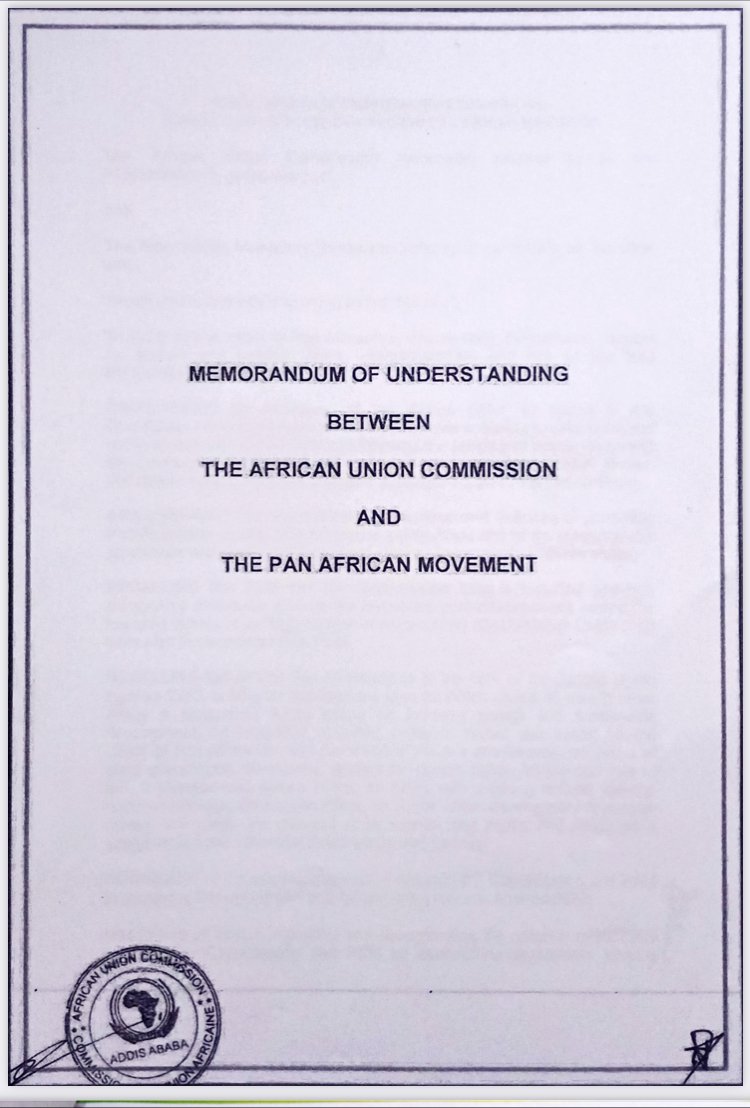
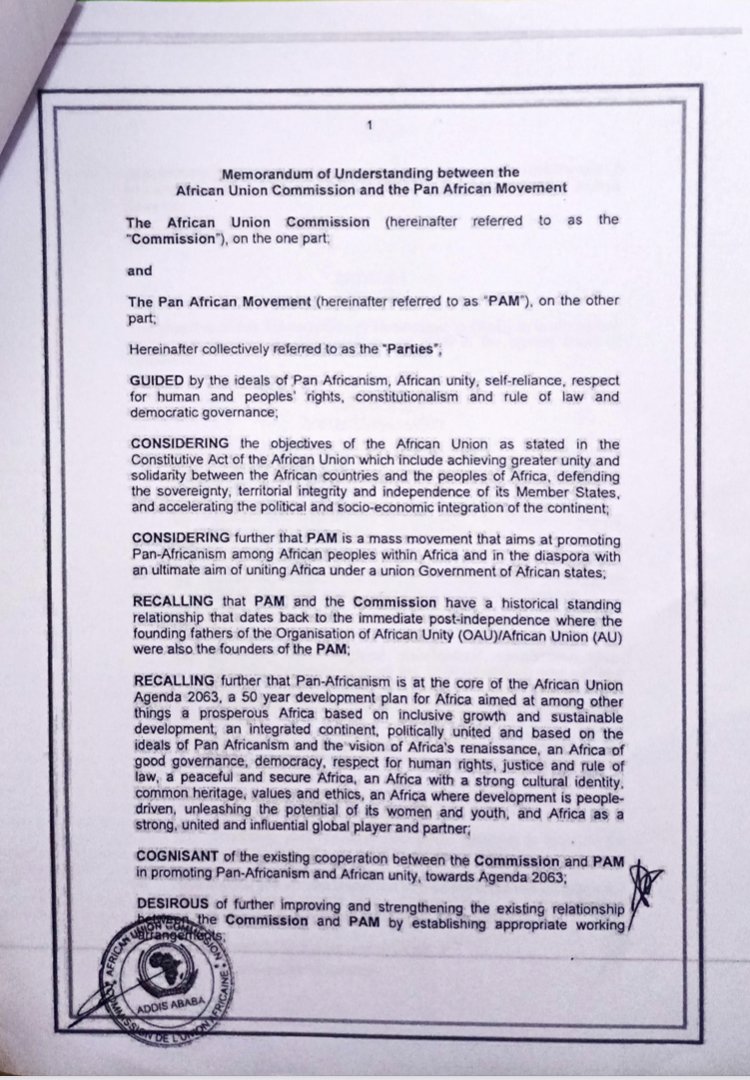
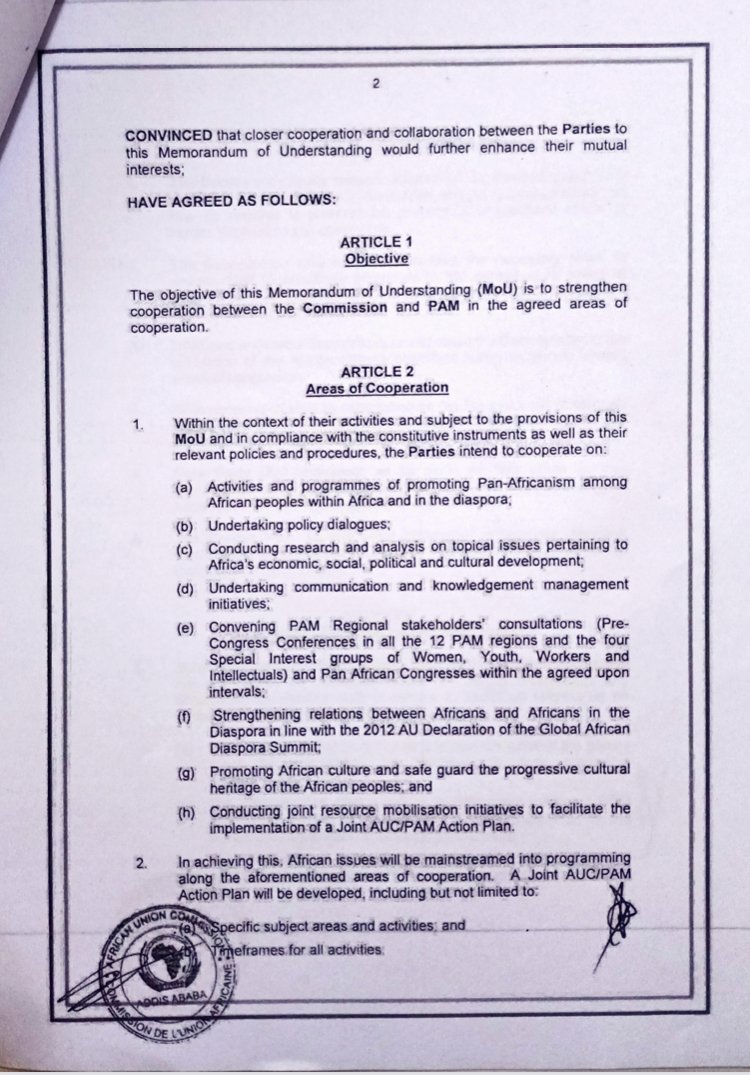
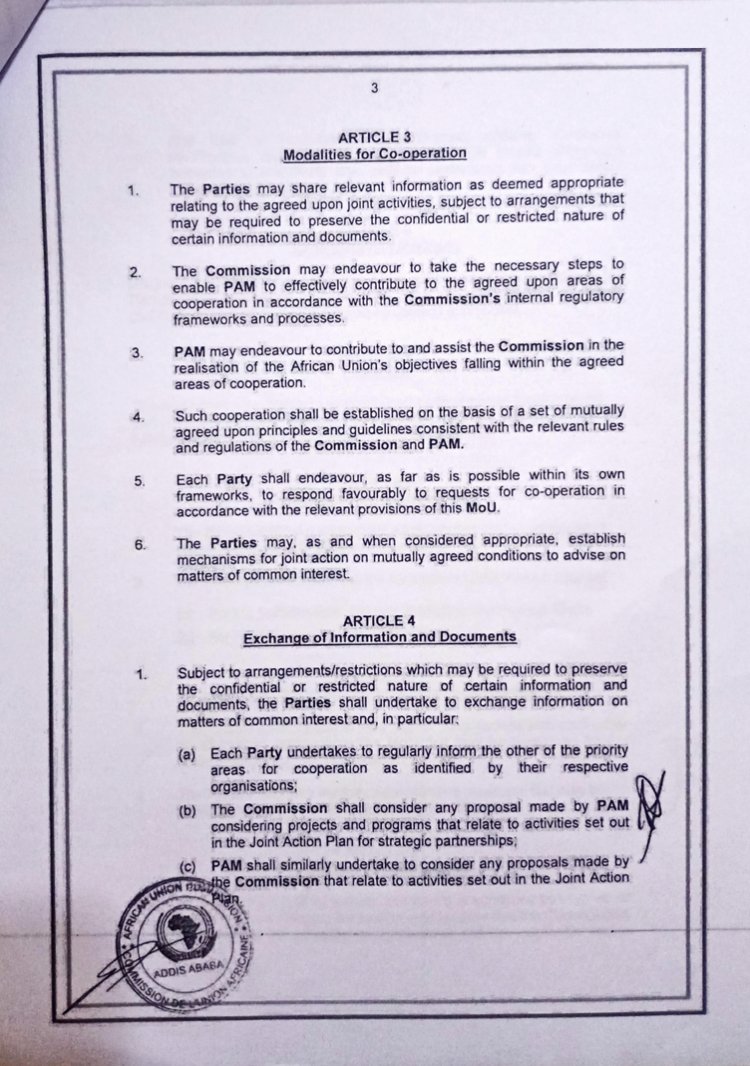
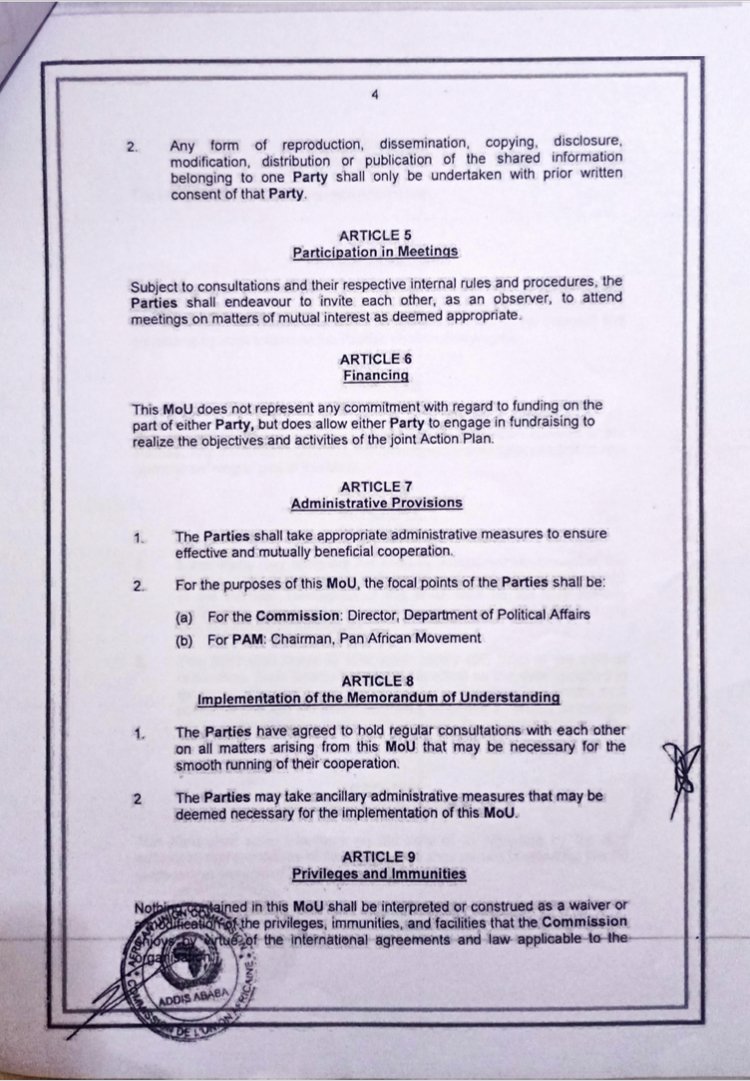
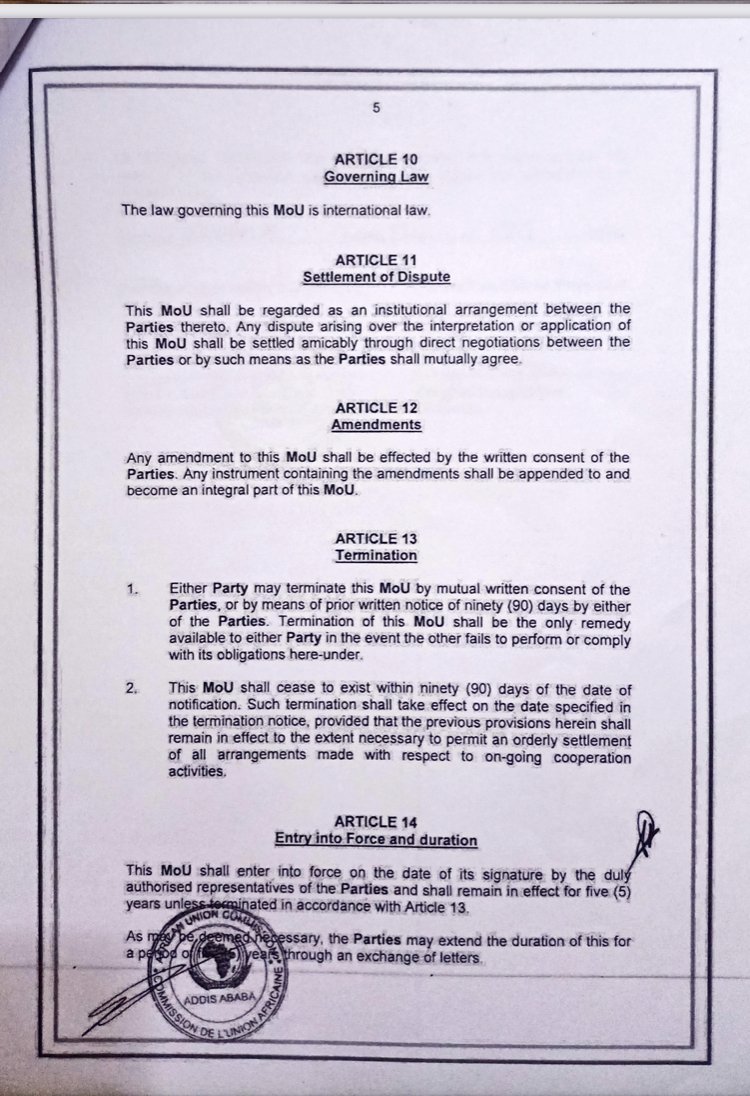
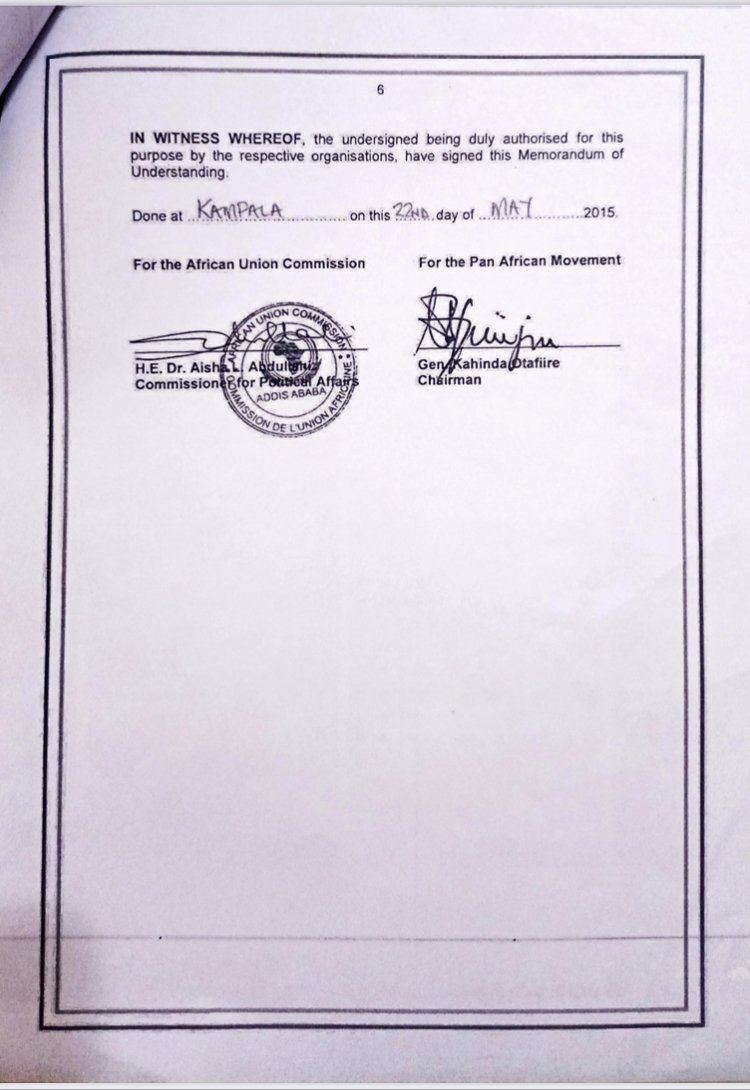
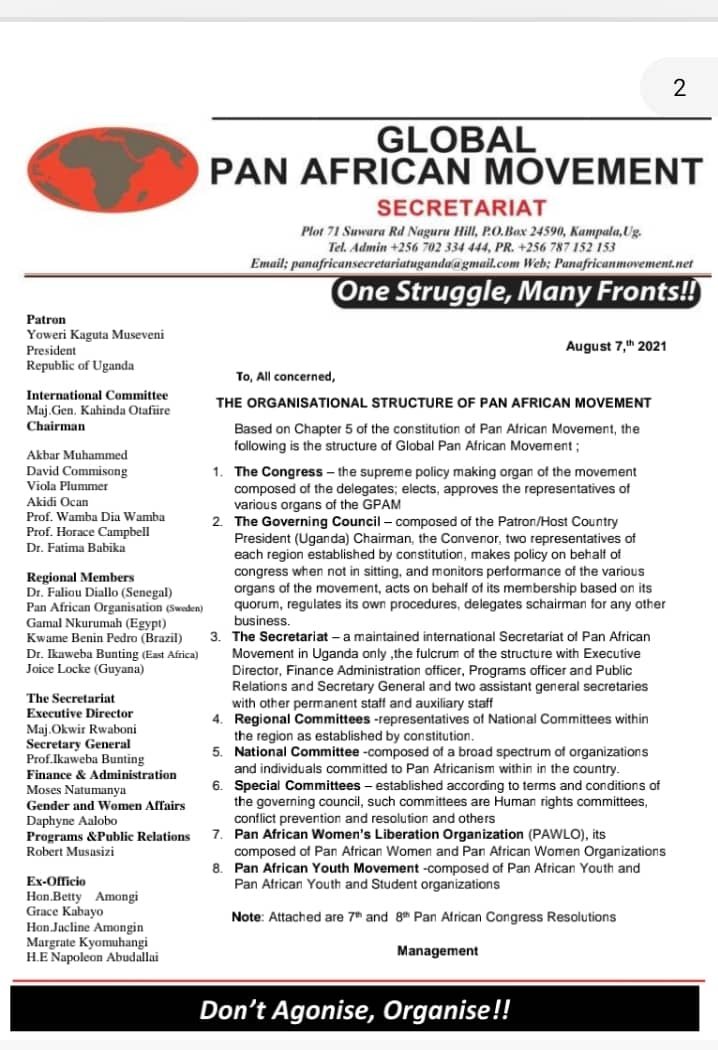
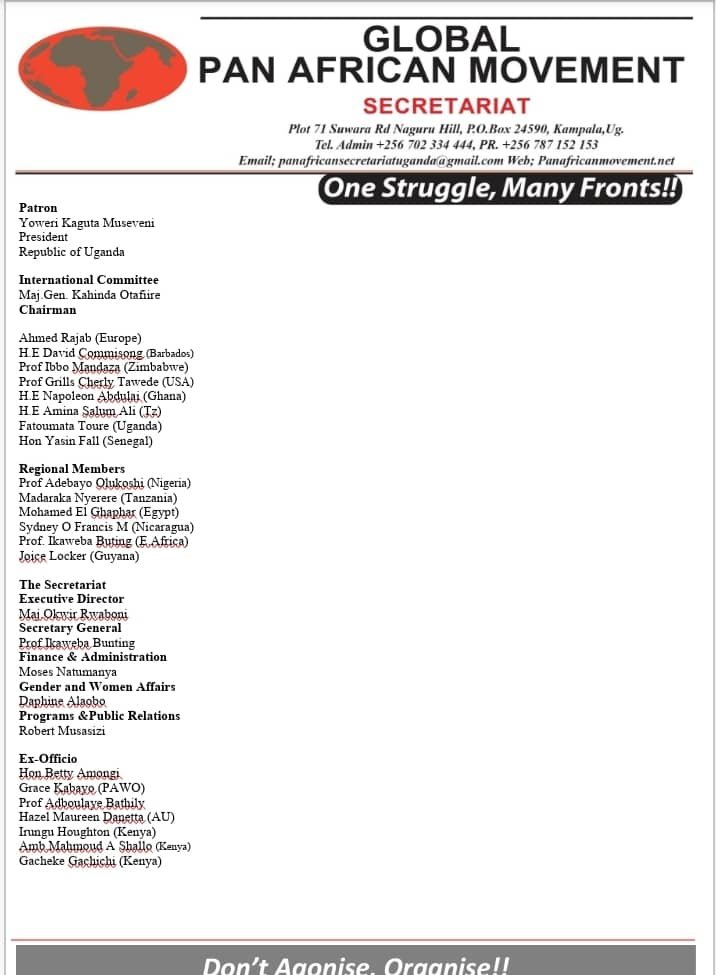
PAN AFRICAN IMPERATIVE - HARMONIZE EFFORTS
“We recognized the need for African leadership to immediately implement processes and structures that incorporate the 6th region of the African Union, the Diaspora, in implementing Agenda 2020 and Agenda 2063”
- 8th PAC, Accra, Ghana 5-7 March 2015
***************************************************************
“Since the amendment of the AU constitution, it has been brought to our attention the onus has been left to the African Diaspora to organize and collectively, in a united manner present demands to the African Heads of State as to how we wish to organize and formalize the 6th Region in the same way as the other 5 regions on the continent of Africa. . . . The African Diaspora Pan African Congress will primarily focus on the formalization of the 6th Region.
- H.E. Ambassador Arikana Chihombori-Quao, Call for the ADDI African Diaspora Pan African Congress (ADPAC now “8PAC1”) - September 2022
***************************************************************
“Sixty-four (64) countries participated in the GADS in which President Muhammadu Buhari called on Africans home and abroad to connect and create a common front through strategic frameworks to address the challenges arising in the new world order.”
- Global African Diaspora Symposium (GADS), 27-28 April 2023 at the Rotunda Hall, Ministry of Foreign Affairs, Abuja
***************************************************************
“The Ministers stressed the need to move towards a synergy of action by Pan Africanists and welcomed the project to organize the 9th Pan-African Congress in Lome, in 2024, by Togo, in collaboration with the African Union, on the theme ‘Renewal of pan-Africanism and Africa's Role in the Reform of Multilateral Institutions: mobilizing resources and reinventing Itself for action’.”
- The African Political Alliance (APA), first ministerial conference in Lomé, Togo - May 3, 2023
THE WAY FORWARD - WHAT IS NEEDED: A UNITY DECLARATION AND 100,000 ENDORSEMENTS
By the end of 2024 we can have:
A Permanent Pan African Secretariat with a physical headquarters and operational funding;
An AU 6th Region High Council with a physical headquarters, operational funding, and 10-15 Ambassadors at the AU Permanent Representatives Committee which would give the AU6th Region equal status as the other five regions;
An AU 6th Region Registry that serves as a census that would collect a $1 registration fee from each person in the AU6th region, some amount of which would fund AU6th Region administration and programming as well as Pan African Secretariat support.
In this way, all Africans - both those at home and abroad - can achieve a functional unity, fund itself and speak with one voice. The series of Pan African Congress, IF UNITED AND COORDINATING TOGETHER, can achieve this. How do we manifest this unity?
Evidence of Unity at the Top - this can be achieved by H.E. President Yoweri Museveni, Republic of Uganda; H.E. President Emmerson Dambudzo Mnangagwa, Republic of Zimbabwe; and H.E. President Faure Essozimna Gnassingbe, President of the Togolese Republic signing the DECLARATION FOR THE HARMONIZING OF THE PAN AFRICAN CONGRESSES AND THE EFFORTS TO ESTABLISH THE AFRICAN DIASPORA AS THE 6TH REGION OF THE AFRICAN UNION.
Evidence of Unity in the Middle - this can be achieved by having each event’s organizing committee sign the DECLARATION FOR THE HARMONIZING OF THE PAN AFRICAN CONGRESSES AND THE EFFORTS TO ESTABLISH THE AFRICAN DIASPORA AS THE 6TH REGION OF THE AFRICAN UNION and agree to appoint one member to the Pan African Imperative Harmonization Steering Committee whose purpose is to ensure the harmonization of their respective agendas.
Evidence of Unity at the Foundation - this can be achieved by having 100,000 people endorse the Pan African Congresses Harmonization bycompleting the online form at the bottom of this post.
DECLARATION FOR THE HARMONIZING OF THE PAN AFRICAN CONGRESSES AND THE EFFORTS TO ESTABLISH THE AFRICAN DIASPORA AS THE 6TH REGION OF THE AFRICAN UNION
Whereas the 8th Pan African Congress (PAC8.0) held in Accra, Ghana 5-7 March 2015 concluded, “Recognizing the need for permanent and enduring organizational structures and operational principles for sustained activism in order to achieve the goals and objectives of the resolutions arising from preceding Congresses to the 8th PAC; . . . COGNIZANT of the concerns expressed by a significant number of delegates regarding the negative impact on the PAM of not convening subsequent Congresses in a timely manner. . . . ACKNOWLEDGING the strengths that are gained through collaborative partnerships based on transparency, integrity and political synergies, . . . We acknowledged the need for strong collaboration, especially through citizen input, with existing Pan African entities and initiatives, such as Agenda 2063 of the AU, and especially those identified to promote the Sixth Region of the African Union and the United Nations Decade for the Peoples of African Descent. Efforts such as these can serve to educate and stimulate individuals within the Global African Family who have not been previously reached to be mobilized in their own interests. . . We recognized the need for African leadership to immediately implement processes and structures that incorporate the 6th region of the African Union, the Diaspora, in implementing Agenda 2020 and Agenda 2063 . . . Recommend that the identification of appropriate organizations to be a conduit for Africans of the Diaspora to partner with the PAM initiatives at all levels and facilitate the involvement or inclusion of Africans from the Diaspora who have repatriated back home to Mother Africa. Strongly support the actualization of the concept of the 6th Region of Africa, being the Diaspora, by the 8th Pan African Congress”;
Whereas H.E. Ambassador Arikana Chihombori-Quao issued in September 2022 the call for the 8th Pan African Congress Part 1 (PAC8.1) to be held in late 2023 in Harare, Zimbabwe stating, “Since the amendment of the AU constitution, it has been brought to our attention the onus has been left to the African Diaspora to organize and collectively, in a united manner present demands to the African Heads of State as to how we wish to organize and formalize the 6th Region in the same way as the other 5 regions on the continent of Africa. . . . The African Diaspora Pan African Congress (PAC8.1) will primarily focus on the formalization of the 6th Region”;
Whereas Sixty-four (64) countries participated in the Global African Diaspora Symposium (GADS), 27-28 April 2023 at the Rotunda Hall, in Abuja, Nigeria in which President Muhammadu Buhari called on Africans at home and abroad to “connect and create a common front through strategic frameworks to address the challenges arising in the new world order”;
Whereas the Governing Council of Global Pan African Movement (GPAM) under the patronage of Ugandan President H.E. Yoweri Museveni is planning to convene the 8th Pan African Congress Part 2 (PAC8.2) in Kampala in August of 2024 to commemorate the 30th Anniversary of the 7th PAC held in Kampala in 1994;
Whereas The African Political Alliance (APA) first ministerial conference in Lomé, Togo - May 3, 2023 stated “The Ministers stressed the need to move towards a synergy of action by Pan Africanists and welcomed the project to organize the 9th Pan-African Congress (PAC9) in Lomé, in 2024, by Togo, in collaboration with the African Union, on the theme ‘Renewal of pan-Africanism and Africa's Role in the Reform of Multilateral Institutions: mobilizing resources and reinventing Itself for action’”;
Whereas the Global African Diaspora Forum, held July 4-7, 2023 in Nairobi, Kenya has just concluded; and
Whereas The Global RootsSynergy Roundtable (GRSR), led by the African Union African Diaspora 6th Region Facilitators Working Group (AUADS) issued the Accra Declaration in November 2019 and hosted the Addis Ababa Summit in May 2022, of which the Resolution from this Roundtable was submitted to the African Union Commission in cooperation with the CIDO, AU ECOSOCC and ACPHR, is now proposing at its Maputo Summit 10-13 July, 2023 to establish an AUADS High Council (HC) that would provide a coherent governance organizational voice for Diaspora participation in the African Union;
NOW, THEREFORE, WE, THE UNDERSIGNED
Agree, in the spirit of UBUNTU, to communicate, provide mutual support, and effectively collaborate when possible;
Agree to harmonize our agendas into a connected effort for mutual benefit;
Agree that the AUADS Maputo Summit, the PAC8.1, the PAC8.2 and the PAC9 should be viewed as independent and complementary efforts in alignment with the PAC8.0 resolution “for strong collaboration, especially through citizen input, with existing Pan African entities and initiatives. . . . and especially those identified to promote the Sixth Region of the African Union” in order to overcome “the negative impact on the PAM of not convening subsequent Congresses in a timely manner”;
Agree that the PAC8.1 should be viewed as the next necessary step in accordance with PAC8.0 resolution for “the actualization of the concept of the 6th Region of Africa, being the Diaspora, by the 8th Pan African Congress”;
Agree that the PAC8.1 Limited Agenda, and specifically the Agenda Item: Pathway to Dual-Citizenship For Continental Diaspora and Descendants of the Formerly Enslaved is the direct fulfillment of the Working Paper on Desirable Results of the 6th Pan African Congress (PAC6), Tanzania, 1974 that stated, “encourage African and Caribbean states to recognize the principle of dual citizenship for Africans from the West. . . . and that special effort be made to facilitate their acquiring of African citizenship”;
Agree that the PAC8.1 Harare Declaration should include a resolution that the AUADS High Council Proposal finalized at the Maputo Summit should be included as an agenda item to be reviewed, revised where applicable through the process of consensus and ultimately adopted at PAC8.2 and thereby opening the nominations process for both AU 6th Region Ambassadors to the AU Permanent Representatives Committee (PRC) and AUADS High Council executives and administrators to be elected at PAC9 in Lomé, Togo; and
Agree to the Harmonization Calendar
Drafted by:
Siphiwe Baleka, Coordinator PAC8.1
Reverend Kwame Kamau, African Reparations Minister
Principals solicited:
H.E. President Yoweri Museveni, Republic of Uganda
H.E. President Emmerson Dambudzo Mnangagwa, Republic of Zimbabwe
H.E. President Faure Essozimna Gnassingbe, President of the Togolese Republic
H.E. Kahinda Otafiire, Minister of Internal Affairs of Uganda and Chairman, Governing Council of Global Pan African Movement (GPAM)
H.E. Professor Robert Dussey, Minister of Foreign Affairs, African Integration and Togolese Abroad, Republic of Togo
H.E. Ambassador Arikana Chihombori – Quao, MD FAAFP, Founder and President (ADDI)
Former African Union Permanent Representative to the United States
Dr. Barryl A. Biekman, PhD., Coordinator of the African Union African Diaspora 6th Region Facilitators Working Group Europe & Co-Facilitator of the Monitoring & Policy Working Group











CALL FOR THE PAC 8.2 BY THE GLOBAL PAN AFRICAN MOVEMENT






